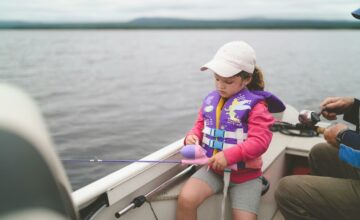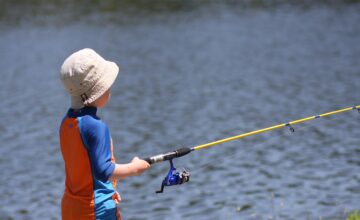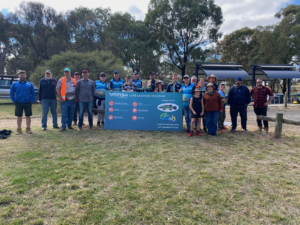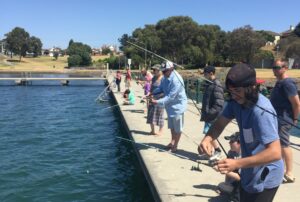November 21, 2023
Photo: Rig Recycle, Tangaroa Blue
We know how important litter management is to recreational fishers. In fact, in our 2022 Advocacy Priorities survey, it was identified as the top priority for Victorian recreational fishers who want to see more campaigns to reduce litter and rubbish around our waterways.
With that in mind, Tangaroa Blue‘s Rig Recycle program is an Australian-first initiative that collects unwanted recreational fishing tackle and packaging items to divert it from landfill by recycling and repurposing it. Not only will using a Rig Recycle bin divert your unwanted tackle from ending up in landfill, it can also stop your gear from ending up in our waterways as marine debris.

Items that can be recycled in a Rig Recycle bin include:
- fishing line
- plastic line spools
- handline spools
- hooks
- sinkers
- swivels
- lures
- floats
Items dropped into a Rig Recycle bin should be clean, dry and no smelly items.
Items that can be repaired are reused and placed in Rig Recycle’s recreational fishing kits to support social fishing charities.
The Rig Recycle program is funded under Sustainability Victoria’s Circular Economy Fund.
Recfishers are encouraged to drop off their unwanted tackle at one of 60 Rig Recycle bins across metropolitan Melbourne and regional Victoria.
Use the Recycle Mate website or app to find your local Rig Recycle.
FISHING LITTER AND MARINE DEBRIS
Marine debris, or marine litter, is defined as any persistent, manufactured or processed solid material discarded, disposed of or abandoned in the marine and coastal environment (UN Environment Program).
Marine debris is a a worldwide environmental issue and there has been an increase in the quantity of litter and debris found at sea and washed up on the shores. According to Australian Marine Debris Initiative database (AMDI), fishing litter is one of the top 10 items recovered during community clean-ups in Australia.
Marine and coastal clean-up event organisers can contribute to the AMDI by sharing data such as what they’re collecting at their events and the amount of items. Since 2004, more than 21 million pieces of data have been input into the AMDI to show how much and types of marine debris that are impacting beaches around the country.








